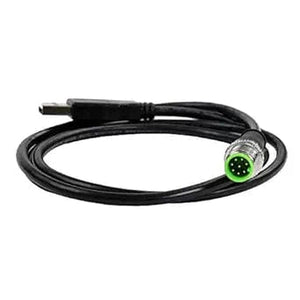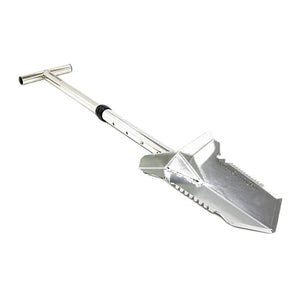Do you ever wonder what secrets lie beneath the surface of your community? What stories and treasures have been left behind by those who came before us? Metal detecting is a fascinating hobby that allows you to uncover history and unearth artifacts that have been buried for years. From ancient coins to military relics, the possibilities are endless. But where do you start? With a little research and some basic equipment, you can begin exploring metal detecting sites in your own backyard. Whether you're a history buff or just looking for a new adventure, discovering hidden treasures in your community is sure to provide excitement and a deeper appreciation for the past. So grab your metal detector and get ready to dig up history!
The Importance of Researching Metal Detecting Sites
Before you start metal detecting, it's important to do your research. You don't want to waste your time digging in areas that are unlikely to yield valuable finds. One of the best ways to find metal detecting sites is to research local history. Look for areas that were once used for transportation, such as old roads or bridges. These areas were often frequented by travelers who may have lost valuable items along the way.
Another good place to search is near old homesites or abandoned buildings. People often buried their valuables for safekeeping, and these items may still be hidden underground. Look for areas with signs of human activity, such as old trash dumps or former campgrounds.
You can also check with your local historical society or library for information on the history of your community. They may have maps or records that can help you identify potential sites for metal detecting. Additionally, you can search online for metal detecting forums or websites that offer tips and advice on finding good locations.
Remember, it's important to obtain permission before metal detecting on private property. Always ask the property owner for permission and respect their wishes if they decline.
How to Research Potential Metal Detecting Sites in Your Community
Once you've identified potential metal detecting sites in your community, it's time to narrow down your search. Start by using a metal detecting app or website to map out the area you want to search. This will help you keep track of where you've already searched and where you still need to explore.
Next, check the soil composition of the area you want to search. Different types of soil can affect how deep items are buried and how easily they can be detected. Sandy or loamy soil is generally easier to detect, while clay or rocky soil may require more advanced equipment.
It's also important to consider the weather conditions when planning your metal detecting outing. Wet soil can make it easier to detect items, while dry soil can be more difficult. Make sure to check the weather forecast and plan accordingly.
Finally, it's a good idea to start small when searching for metal detecting sites. Focus on a specific area and thoroughly search it before moving on to a new location. This will increase your chances of finding valuable items and help you gain confidence in your metal detecting abilities.
Tools Needed for Metal Detecting
To get started with metal detecting, you'll need a few basic tools. The most important tool is, of course, a metal detector. There are many different types of metal detectors available, ranging from simple entry-level models to more advanced professional-grade detectors. Before you buy metal detectors online, it's important to remember to choose a metal detector that fits your skill level and budget.
Other important tools include a shovel or digging tool for removing soil, a pinpointer for locating items, and a pouch or bag for collecting your finds. It's also a good idea to wear comfortable clothing and shoes that are appropriate for the weather and terrain you'll be exploring.
Metal Detecting Techniques for Beginners
Metal detecting is a skill that takes time and practice to master. Here are a few tips for beginners:
- Start by practicing in your own backyard or at a local park. This will help you get used to your metal detector and learn how it responds to different types of metal.
- Sweep your metal detector slowly and methodically over the ground, making sure to overlap each sweep. This will ensure that you don't miss any valuable items.
- Listen for different tones and sounds from your metal detector. Different metals will produce different sounds, so learning to recognize these sounds can help you identify valuable items.
- If your metal detector indicates that there is an item buried underground, use your digging tool to carefully remove the soil. Make sure to fill in any holes you dig to minimize disruption to the area.
Identifying and Dating Finds
Once you've found some items with your metal detector, it's important to identify them and determine their age. There are many resources available for identifying and dating metal objects, including books, online forums, and metal detecting clubs.
One of the most important factors in identifying and dating a metal object is its composition. Different metals were commonly used in different time periods, so knowing the composition of an item can provide clues about its age and origin.
It's also important to take good notes and document where and when you found an item. This information can be helpful when trying to identify or date an object.
Legal Considerations and Permissions for Metal Detecting
Metal detecting is a popular hobby, but it's important to follow the rules and obtain the necessary permissions before searching for treasures. In many areas, metal detecting is prohibited on public land, including parks and beaches. Additionally, metal detecting on private property without permission is illegal and can result in fines or legal action.
Before heading out to search for metal detecting sites, make sure to check the laws and regulations in your area. You may need to obtain a permit or permission from the property owner before you can start metal detecting.
Metal Detecting Clubs and Communities
Metal detecting can be a fun and social hobby, and there are many clubs and communities dedicated to metal detecting. Joining a club or community can provide you with access to valuable resources, including information on metal detecting sites, tips on techniques and equipment, and opportunities to meet and learn from other metal detecting enthusiasts.
Preserving Historical Finds
Metal detecting can be a great way to uncover history and learn more about the past. However, it's important to preserve and protect the historical artifacts you uncover. If you find something that you believe may be historically significant, it's important to report it to the appropriate authorities. They can help identify and preserve the item for future generations to enjoy and learn from.
Additionally, it's important to respect the environment and the areas where you're metal detecting. Always clean up after yourself and minimize any damage or disruption to the area.
Conclusion
Metal detecting is a fascinating hobby that allows you to uncover history and unearth artifacts that have been buried for years. With a little research and some basic equipment like the minelab detectors, you can begin exploring metal detecting sites in your own community. Remember to obtain permission before metal detecting on private property and to follow the rules and regulations in your area. With patience, practice, and a little bit of luck, you may just uncover a hidden treasure and gain a deeper appreciation for the past




























Leave a comment